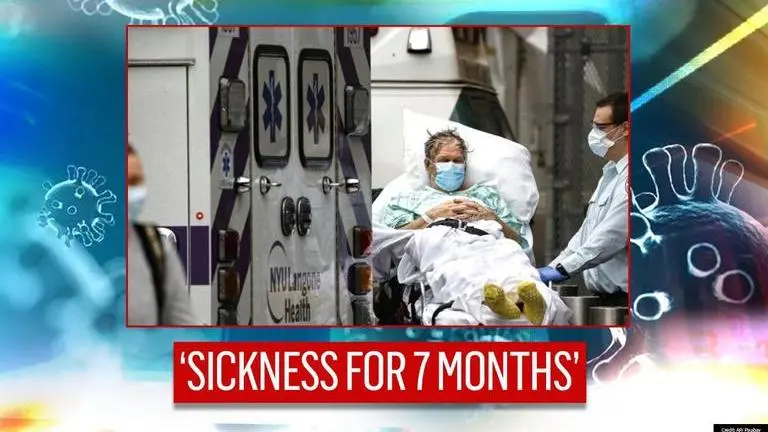Updated 15 October 2020 at 13:05 IST
'Long COVID-19' has continuing physiological symptoms for months, research finds
Doctors at NIHR said that COVID-19 illness might last for up to seven months or more for patients with physiological symptoms in organs.
- Lifestyle News
- 3 min read

The National Institute for Health Research (NIHR) and its Clinical Research Network (CRN) on October 14 found that patients that shred coronavirus sometimes suffer from "long COVID" syndrome that causes a series of illness in the patient’s body, as well as with mental implications. Doctors at NIHR in a report said that the coronavirus illness might last for up to seven months or more for patients with physiological symptoms, such as in organs, including heart and lungs. The symptoms occur and vanish, only to rise again in presumably a different body part.
“This review highlights the detrimental physical and psychological impact that ongoing COVID is having on many people's lives,” lead researcher of the study, Dr. Elaine Maxwell said in the report.
The NIHR has been conducting an array of interventional studies investigating potential COVID-19 treatments, most recently with over 200,000 participants across the UK. The institute, with its new research about coronavirus aimed to integrate the information into the best healthcare for patients with the help of new and existing drugs. “Young, healthy people experience life-threatening illness when they get COVID-19,” the institute said, but some people have a “distinct pathway” of ongoing effects with fluctuating and multisystem symptoms, it informed.
Published by the National Institute for Health Research
— Betty C. Jung (@bettycjung) October 15, 2020
NIHR Evidence is managed by NIHR with a funding contribution from Health and Care Research Wales, Welsh Government. (I highly recommend this resource to those suffering from #longcovid. Share this with those you know) https://t.co/qL3gQZYgDd
In its Living with COVID-19 review, The National Institute for Health Research Centre for Engagement and Dissemination (NIHR CED) researchers said that COVID-19 illness in certain people wasn’t, in fact, a short period of illness. “ The infection is not a discrete episode but one that marks the start of ongoing and often debilitating symptoms. For some, this is related to their rehabilitation following a hospital admission, but others are reporting life-changing experiences that follow an initial infection,” scientists in the review said.
“COVID-19 is clearly a complex multisystem disease and not just restricted to the cardiopulmonary systems. This is so, both in the acute phase and the post-acute recovery phase,” Group Captain Alex Bennett, Defence Professor of Rheumatology and Rehabilitation, Stanford Hall said.
To save as many lives as possible we need to know the best way to help #Covid19 patients.
— NIHR Research (@NIHRresearch) October 13, 2020
Research teams are working right now to answer that question. Find out about some of the ground-breaking NIHR research at https://t.co/d43izltgEV #NIHRMakingaDifference pic.twitter.com/RAy6lLhK7O
Advertisement
‘Mild’ COVID-19 continuing symptoms
Also known as “Long Haul Covid”, the illness was detected by the researchers from initial coronavirus patients in Italy discharged from the hospitals. Nearly 87 percent of people discharged from a Rome hospital reported at least one symptom 60 days after the onset of COVID-19 and 55 percent had three or more symptoms including fatigue (53 percent), difficulty in breathing (43 percent), joint pain (27 percent), and chest pain (22 percent) with 40 percent saying it had reduced the quality of their life.
Advertisement
According to NHS England’s published data on ‘After-care needs of inpatients recovering from COVID-19’ of more than 95,000 patients under hospital admission, it was found that at least 45 percent of total patients still needed ongoing support. In fact, 10 percent of ‘mild’ COVID-19 cases reported continuing symptoms lasting more than four weeks. A separate report from US hospitals indicated that of the 640 people with coronavirus that lasted over two weeks, the vast majority of participants experienced fluctuations in the type of symptoms (70 percent) fluctuating between intense symptoms (89 percent). Between 10 percent and 20 percent reported complications of symptoms for longer.
Published By : Zaini Majeed
Published On: 15 October 2020 at 13:06 IST
